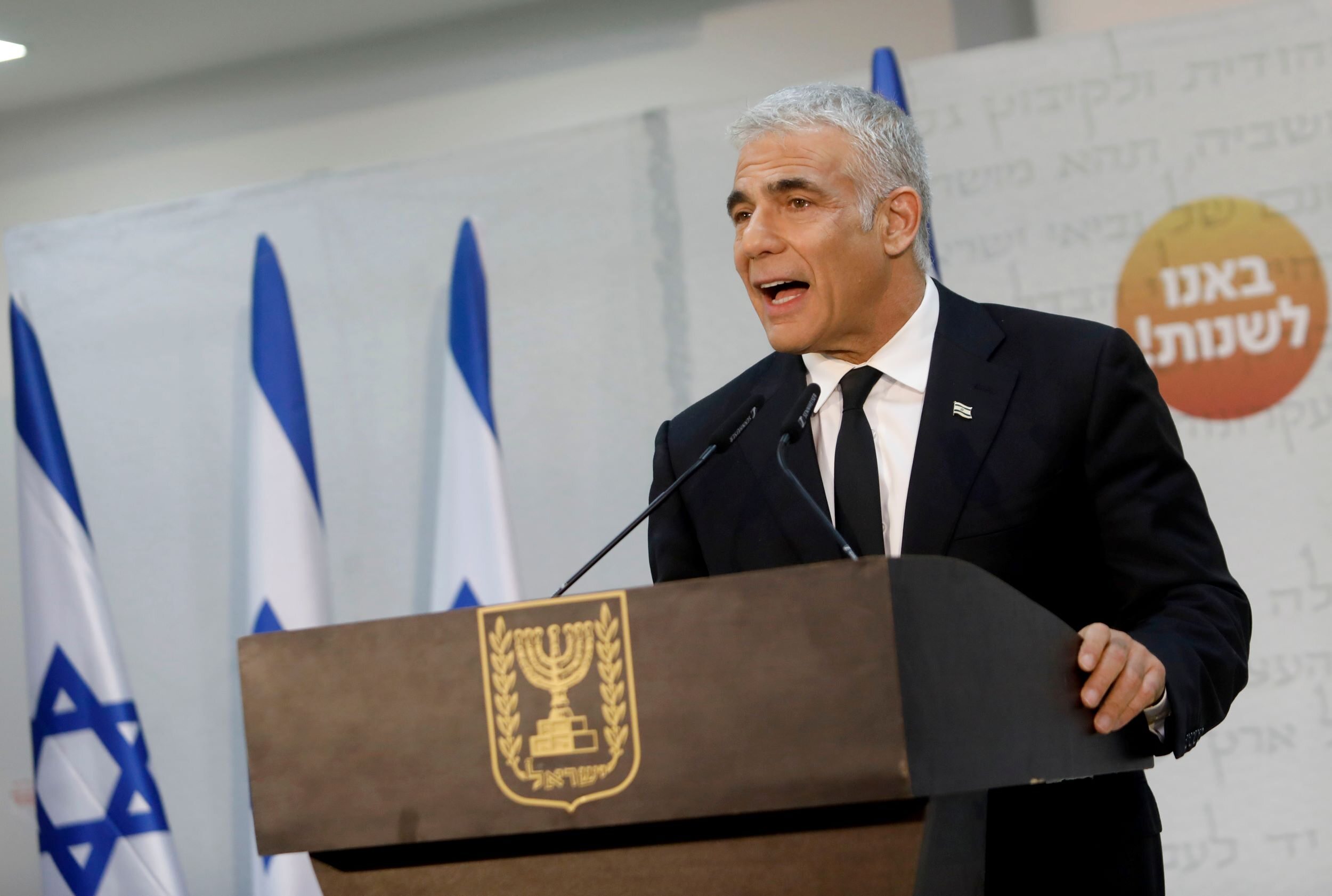Prezydent Duda podpisał nowelizację Kpa. Ostra reakcja Izraela
 ]
]
Odpowiedź na nowelizację Kodeksu postępowania administracyjnego Jair Lapid zamieścił na Twitterze w formie wideo i tekstowej. Minister zarzucił Polsce, że przyjęła „antysemickie” i „niemoralne prawo” . Poinformował też, że dziś wezwał na „bezterminowe konsultacje” szefową ambasady Izraela w Warszawie (po tym, jak w listopadzie 2020 roku odwołany został ambasador Alexander Ben Zvi, na czele izraelskiej dyplomacji w naszym kraju stoi chargé d’affaires, Tal Ben-Ari Yaalon – red.) i zapowiedział, że do Polski nie zostanie wysłany Jaakow Liwne, który miał objąć placówkę. Zasugerował też, by na placówkę nie wracał z urlopu w Polsce Marek Magierowski.
„Ministerstwo Spraw Zagranicznych zarekomenduje dziś Ambasadorowi RP w Izraelu kontynuowanie wakacji w jego kraju. Powinien wykorzystać dostępny mu czas na wyjaśnienie Polakom, czym dla obywateli Izraela jest Holokaust i jak bardzo nie będziemy tolerować pogardy dla pamięci ofiar i pamięci Holokaustu. Na tym się nie skończy. Prowadzimy rozmowy koordynacyjne z Amerykanami na temat sposobów późniejszej odpowiedzi” – czytamy w tweecie ministerstwa.
W kolejnym zarzucono Polsce, że stała się „państwem niedemokratycznym, które nie honoruje największej tragedii w historii ludzkości” .
O co chodzi z nowelizacją Kodeksu postępowania administracyjnego?
Przyjęta przez Sejm 11 sierpnia ustawa zmienia przepisy Kpa, ograniczając do 30 lat możliwość zaskarżenia decyzji administracyjnych podjętych przez władze z rażącym naruszeniem prawa. Czyli, nawet jeśli wiele lat temu (np. w czasach PRL) władze podjęły niezgodną z prawem decyzję, to po 30 latach nie będzie można jej zaskarżyć na podstawie kodeksu postępowania administracyjnego.
Gdy Sejm przyjął ustawę w czerwcu tego roku, od razu wywołała ona ostrą reakcję Izraela, który dopatrują się zamknięcia furtki dla roszczeń swoich obywateli, dotyczących majątku utraconego w trakcie II wojny światowej. Szybko zareagował też premier Mateusz Morawiecki, mówiąc, że „Polska nie będzie płacić za niemieckie zbrodnie”. W sprawę zaangażowała się też amerykańska administracja, która kilkukrotnie apelowała o wstrzymanie prac nad ustawą.
Warto jednak podkreślić, że sprawa dotyczy przede wszystkim roszczeń z okresu wczesnego PRL-u. Jednak i Izrael, i Polska, i Stany Zjednoczone stosują w dużej mierze argumentację dotyczącą Holokaustu.
Czytaj też:
O tę ustawę oburzały się USA i Izrael. Prezydent podpisał nowelizację Kodeksu postępowania administracyjnego
Poland’s president signed property restitution amendments
 ]
]
Wojciech Olkuśnik/PAP
Poland’s President Andrzej Duda told PAP on Saturday that he signed into law a set of amendments to administrative laws. The key change says that after 30 years of an administrative decision - applying among others to properties - it will be impossible to contest it.
“I have made my decision concerning this law, which has been the subject of a lively and loud debate at home and abroad in recent months. After an in-depth analysis I have decided to sign… the amendments to the administrative code,” Duda told PAP.
He explained that the new regulations aimed to protect current property owners from unexpected disownment due to restitution claims. “This will put an end to the insecurity felt when a flat or property bought in good faith can be taken away on the strength of a simple administrative decision,” Duda said.
He added that the laws were also aimed to curb corruption in restitution cases, and refuted accusations that it was specifically aimed against Jewish restitution claimants.
Duda’s stance was backed by his aide Jakub Kumoch, who said that president’s signature “put an end to the insecurity and endangerment felt by thousands of tenants” and marked “an important moment in the lives of many Polish families.”
Referring to Israel’s accusations that the new restitution laws were aimed against Holocaust victims, Kumoch said Poland will not consent to the “instrumentalisation of the Holocaust,” and stressed that the whole issue “was not about the Holocaust at all.”
He added that Poland was a friend of Israel and “one of the few countries where Jews were safe.”
Israel’s foreign minister Yair Lapid wrote on Saturday on Twitter : “Poland today approved for the first time an anti-Semitic and immoral law. Tonight I will instruct the charge d’affaires of our embassy in Warsaw to return to Israel immediately for indefinite consultations.”
He added that he will instruct Marek Magierowski, the Polish ambassador to Israel, to continue his vacation in Poland so he can explain to Poles that Israel “will not tolerate contempt for the memory of the victims and the memory of the Holocaust.”
German state broadcaster apologises for “Polish ghetto” misnomer
 ]
]
German public broadcaster Deutsche Welle on Thursday apologised for using the term “Polish ghettos” to describe World War II Jewish ghettos in German-occupied Poland, but refused to remove the offensive text “for the sake of transparency.”
In a Wednesday Twitter post heralding an interview on the Jewish women’s resistance movement during the war, Deutsche Welle wrote that sabotage, firearms and explosives were “rarely associated with women inhabiting Polish ghettos,” evoking strong protests from the Polish consulate in Munich and the Polish ambassador in Israel.
“Polish ghettos? Are you serious? It’s shameful to see a state-sponsored broadcaster spread such terrible fake news! Correct it at least in the name of good Polish-German relations!,” the Polish consulate wrote on Thursday in response to the tweet.
Polish envoy in Israel Marek Magierowski called Deutsche Welle’s misnomer “an evident example of Holocaust negation,” and appealed to the broadcaster to apologise.
In response, Deutsche Welle apologised for what it called “a mistake,” but refused to remove the tweet “for the sake of transparency.”
“A mistake has been made… We apologise for it. For the sake of transparency we want to leave the original tweet and the responding statement,” Deutsche Welle wrote.
Deutsche Welle is a German international public broadcaster financed from the German federal budget and aired in 30 languages.